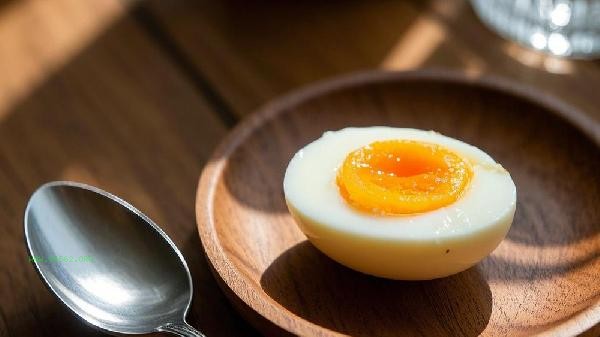During weight loss, you can eat boiled eggs in moderation at night. Boiled eggs are rich in high-quality protein and low in calories, which can help increase satiety and promote muscle repair. However, attention should be paid to consumption time, pairing methods, individual metabolic differences, yolk intake, and overall calorie control.

1. Consumption time:
It is recommended to consume boiled eggs 2-3 hours before bedtime. Metabolism slows down at night, eating too early may increase digestive burden, and staying too late may affect sleep quality. Protein digestion takes 4-6 hours, and a reasonable time arrangement can avoid calorie accumulation.
2. Matching method:
Boiled eggs should be paired with dietary fiber, such as half a cucumber or 100 grams of broccoli. Single protein intake may cause nutritional imbalance, while a combination diet can slow down gastric emptying and improve fat loss efficiency.
3. Metabolic differences:

Individuals with high basal metabolic rates can eat 1-2 whole eggs at night, while those with slow metabolism are recommended to only eat protein. Individuals with insulin resistance or thyroid dysfunction should adjust their intake according to the doctor's advice.
4. Egg Yolk Control:
Each egg yolk contains 5 grams of fat, and it is recommended not to exceed 1 whole egg per day during the weight loss period. Patients with hypercholesterolemia can choose to replace one whole egg with two proteins, preserving protein intake while reducing lipid burden.
5. Heat balance:
A single boiled egg has about 70 calories and needs to be included in the daily calorie budget. If sufficient protein has been consumed for dinner, adding extra eggs may lead to excessive calorie intake. It is recommended to measure accurately through a food scale.

Boiled eggs, as a high-quality source of protein, are more effective when combined with 30 minutes of aerobic exercise and strength training daily. When cooking, avoid adding high sodium seasonings such as soy sauce and salad dressing. You can pair them with black pepper or lemon juice for seasoning. Patients with chronic kidney disease or gout need to strictly control their total protein intake. It is recommended to develop personalized plans under the guidance of a nutritionist. Long term nighttime meal takers should monitor changes in body fat percentage and adjust their diet plan every two weeks.




Comments (0)
Leave a Comment
No comments yet
Be the first to share your thoughts!